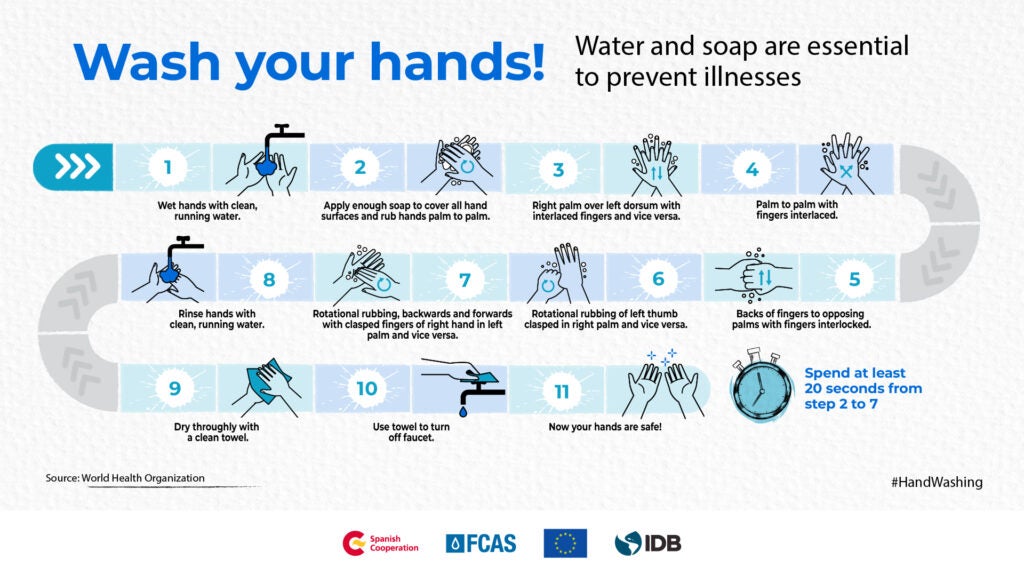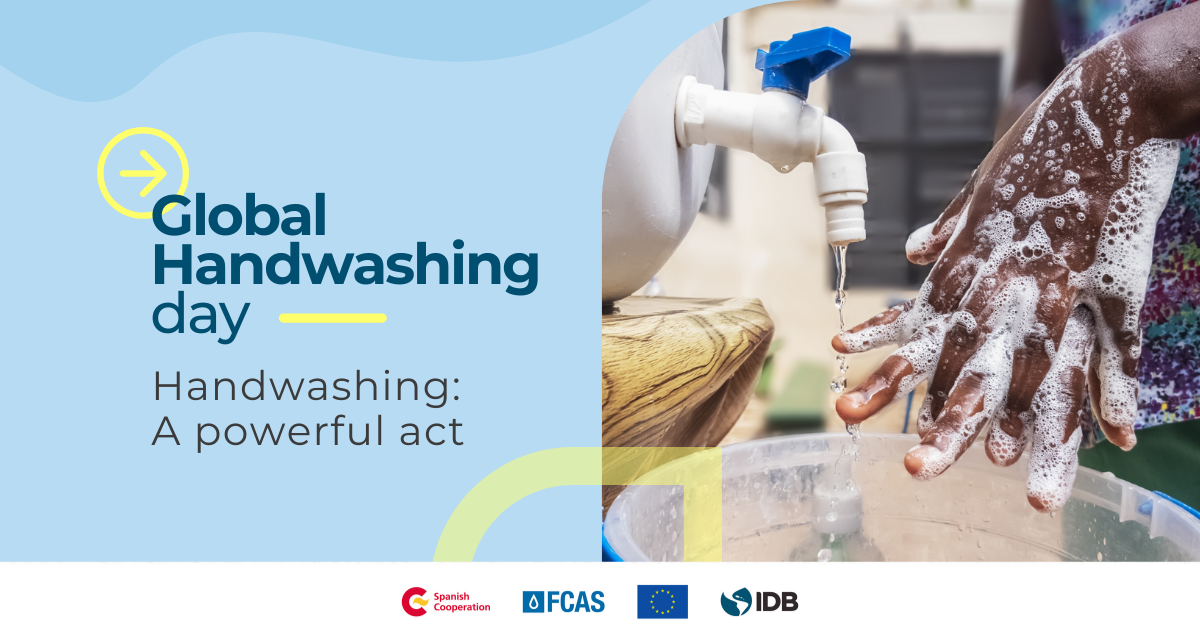The simple act of handwashing may seem a trivial part of your day, but its impact goes far beyond keeping hands clean. It’s an effective and powerful measure to prevent diseases and ultimately save lives, as we witnessed during the pandemic. But are we fully aware of the importance of this practice?

A look at history
This was not always the case. In fact, until less than 200 years ago, the link between poor hygiene and infection was unknown in Western societies. In 1846, in a hospital in Vienna, the Hungarian physician Ignaz Semmelweis became aware of this connection. Too revolutionary for his time, he died alone, forgotten, and misunderstood in an asylum after defending his theories on the importance of hygiene.
We had to wait for the discoveries of Louis Pasteur, a French microbiologist, at the end of the 19th century, to witness a real breakthrough in hygiene practices. Within a few years, handwashing became a daily part of lives, favored by the appearance and democratization of water and sanitation services.
Beyond handwashing
Today, we know that handwashing goes beyond simply applying soap and rinsing them with water. According to the World Health Organization, it is estimated that proper handwashing could prevent up to 3.5 million deaths of children under five each year. It is a meticulous process that involves rubbing hands with soap for at least 20 seconds to effectively destroy germs. The “Happy Birthday” song serves as a good guide to ensure thorough cleaning.
We are also fully aware that access to water, sanitation and hygiene services is essential. Unfortunately, not all people have continuous and/or quality access, either due to drought, misuse or lack of water, and are unable to follow a proper handwashing routine.
According to UNICEF, three out of ten (2.3 billion) people worldwide lack handwashing facilities at home and, among them, 670 million do not have access to any handwashing facilities.
In Latin America and the Caribbean, inequalities are more significant in rural areas, where only 53% of the population has access to safely managed water, around 30% of the population does not have access to basic sanitation, and 72% of water fetching is done by women and girls.
Infrastructure matters
Given traditional gender roles, women and girls are typically responsible for providing household water and caring for vulnerable family members, to the detriment of the time they could devote to productive activities, studies or rest. Therefore, being able to wash their hands safely and continuously has a direct impact on their quality of life.
In addition to meeting the Sustainable Development Goals, investing and maintaining water, sanitation and hygiene infrastructure in public spaces contributes to putting an end to open defecation and preventing communicable diseases in at-risk areas, thereby providing support to vulnerable people and building more inclusive societies.
Handwashing is also essential for those working in health care or education. To ensure this, adequate water, sanitation, and hygiene facilities are paramount. The improvement and maintenance of such infrastructure requires policies and resources, as well as ongoing training of staff and users on maintenance and good hygiene practices.
A commitment to improve lives
At the Inter-American Development Bank, we are committed to ensuring that Latin America and the Caribbean have sustainable, resilient and inclusive access to water, sanitation and hygiene services for all people. Through our projects and initiatives, we work hand in hand with governments and partners to make this goal a reality.
Now, let’s remember that every time we wash our hands, we are performing a powerful act: contributing to a healthier world and fairer societies. For those of us privileged enough to do so, let’s do it consciously and correctly.
Aditional information
Water Organization | Access, sanitation, hygiene – Lazos de Agua
Sponsored by the Latin America Investment Facility of the European Union (LAIF) and the FECASALC Fund (Spanish Fund for Cooperation on Water and Sanitation in Latin America and the Caribbean), this blog is part of the efforts of the Inter-American Development Bank (IDB), the Spanish Agency for International Development Cooperation (AECID), and the European Union to close the gaps in access to water and sanitation, ensuring accessible infrastructure for all people. We recognize the fundamental importance of water and sanitation in our lives, and we emphasize our ongoing commitment to these sustainable and inclusive development efforts.


Leave a Reply